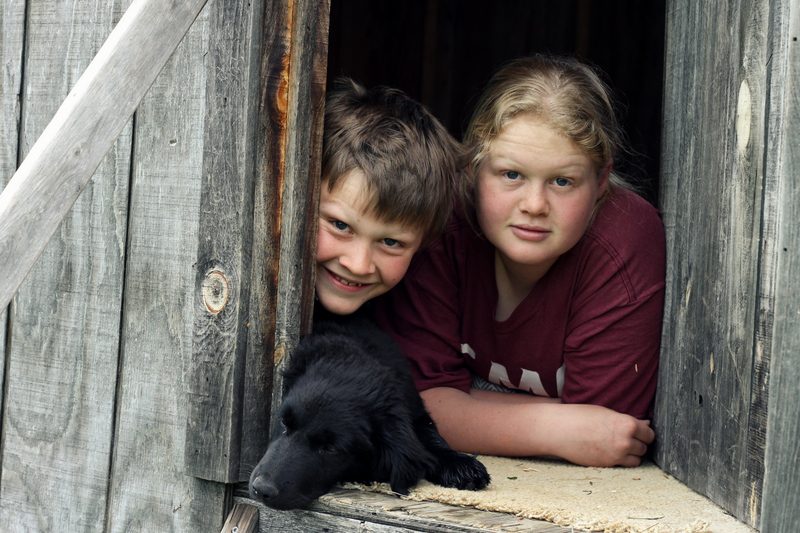When one of my writer friends told me he was going to rent space at The Hub, a collaborative coworking space that’s located downtown, I laughed in his face. “Why do you need to go away to write? Your kids are grown, your wife works full-time, and you have an entire house to write in. Are you nuts?”
“I’ll have to get dressed and go somewhere,” he said. “I think I’ll be more productive.”
I snorted. “Just pay yourself a hundred dollars each month and stay home.”
Then someone posted an article about The Hub on social media. The place did look pretty nifty, I had to admit, and suddenly I found myself thinking about The Hub all the time. What would it be like to write full time? Would I even have the stamina? What would I do with the kids? And then, when I (sheepishly) admitted to my friend that The Hub might be kind of neat after all, my friend told me that The Hub allowed people to try it for a day for free!
My trial day, I spent my precious hours furiously working on a chapter (that I later decided wasn’t relevant, welcome to my world), drinking the free coffee, and falling in love with the place. All those people quietly working, thinking, typing—what communal energy! For my extroverted self, the setting couldn’t have been more perfect.
So I took the plunge. Just for one month, I said, to see how it goes. And because I was worried that my family (and my brain) would crash and burn if I did an entire month of full-time writing straight-off, the owner graciously allowed me to split my first month into two, two-week segments.
This experiment would either be a rollicking disaster or a profitable venture, but either way, I consoled myself, I’d only be out a hundred bucks.
I’m at the halfway point now. Here’s how the first two weeks went down.
Week One
Monday: I write all day and feel exhausted. I’ve never spent so much time focusing my eyes on something just two feet away from my face. But writing is like any other muscle: if I exercise it enough, it will get stronger, right?
Tuesday: I get stuck with my writing. The afternoon drags. I take breaks: lay on the sofa and close my eyes, take a walk around the block. Finally, I send a chapter to my private writing coach—thanks, Bro!—and head home. After supper, I send an SOS to my mother and she stops by to help me brainstorm.
Wednesday: My brother’s feedback is positive, and I’m immediately re-energized. I do edits and then spend the rest of the day churning out new material. I still get sloggy in the afternoon, though.
Thursday: My day off.
Friday: I send a chapter to one of my writing groups. I spend the majority of the day doing edits, thinking (this is the hard part), and rewriting. I go back through my latest pages and try to formulate an outline. When I can’t do anymore, I work on a few other non-book projects.
Week Two
Monday: I take in a plate of maple pecan scones to share with my quiet co-workers. I spend the day wrestling with a chapter and when I leave work, I’m fried. I’ll never be able to write another word in my life.
Tuesday: Because I can’t stand to think about it anymore, I send the chapter to my brother. I brainstorm for the next chapter and write new material. I hate every second and have to force myself to keep my butt in the chair, to keep thinking. My mother surprises me with a visit and a piece of her homemade shoofly pie, and I give her a tour. Despite the break, I’m still going crazy in my head, so I leave a little early to visit a friend. That evening, the larger of my two writing groups meets (but not to discuss my work).
Wednesday: My day off, but in the afternoon I have a meeting with the smaller writing group (three cheers for gritty, productive feedback!), and in the evening Mom helps me plot and brainstorm for the next couple chapters.
Thursday: I write all day, not even stopping for lunch. I don’t get tired, either (do I write better on an empty stomach?), and I have to tear myself away at 4:30. For the first time, I leave work invigorated, not drained.
Friday: I work until 3:30 when I have to stop to run errands.
A Few Observations
*I write like an accordion, blowing up the idea and then cutting pieces away, shrinking it back down. When the document becomes too unweildy, I lift the best paragraphs to a new document and start over again, expanding the topic and then shrinking it. I repeat this process until my eyes cross and my brain shortcircuits. For every four or five finished pages, I have several Google docs and miles of words.
*Working full-time does not make me more productive but it does condense my process. It normally takes me a month to write a (small) chapter, but working full time, I am writing a chapter a week.
*I love treating my writing like an actual full-time job. How will I ever go back to writing in two or three hour snatches? Will I ever be satisfied? (Answer: probably not.)
*Writing a book is not a solo project. Every step of the way, my friends, parents, sibs, and husband are egging me on by providing child care, writing advice, and general rah-rah-rah encouragement. I am so grateful.
*Since I’m working on the book day after day, my brain is never completely shut down. Even when I’m at home, ideas bubble just beneath the surface, often sending me scurrying for a piece of paper on which to write them down.
*While working at The Hub, I don’t cook, homeschool, or blog. I clear my schedule of doctor appointments, unnecessary meetings, and extra projects. All my energy is focused on me: I eat well, go running, get full nights of sleep, and write, write, write. What a luxury.
*Before this writing experiment, I worried I wouldn’t have enough time to keep the family fed, but it’s not nearly the struggle I thought it would be. Since the younger kids are at other people’s houses and the rest of us pack lunches, we don’t go through leftovers at noon—which means we end up having leftovers for supper. Also, it’s quite easy to fix a pan of mac and cheese or a pot of soup when I get home. I do miss homemade pastries, though.
*My younger children don’t like being shuttled around to people’s houses. In a couple years they’ll be old enough to stay home alone, but until then I’m limited. I’ve chosen to be at home with them, though, so I’m not complaining. (Or I’m trying not to complain, at least.)
*Good news: The house does not fall to ruin when I’m gone! I leave the older kids with a list of chores, and when I come home the laundry is folded and put away, the windows washed, the floors swept, etc. They love when I work because they can blast their music and make pancakes for lunch, and I like it because I have live-in maids.
This same time, years previous: with an audience, the quotidian (4.20.15), let’s pretend this isn’t happening, the quotidian (4.21.14), ailments, chocolate mayonnaise cake, bacon-wrapped jalapenos.




















